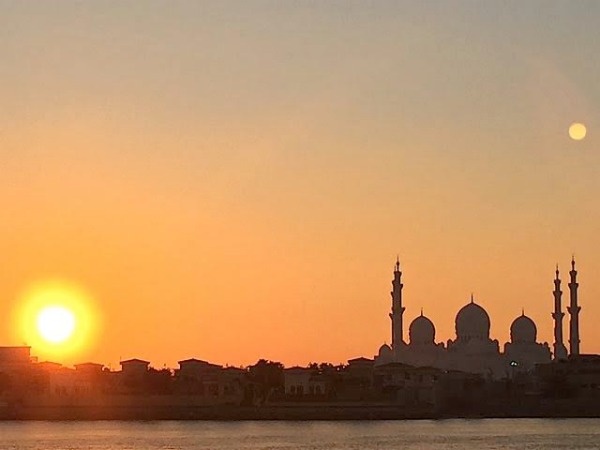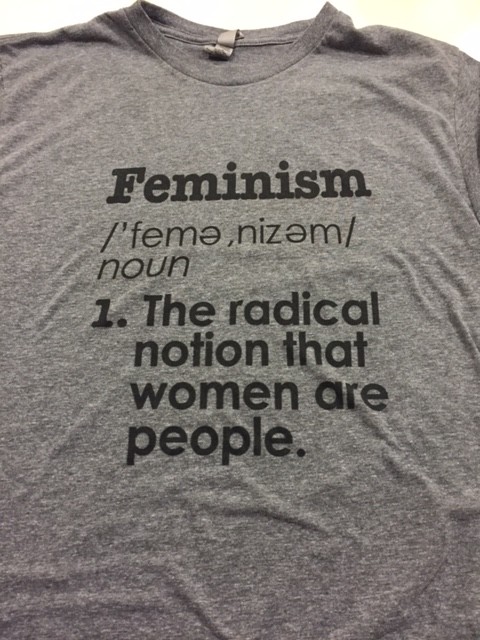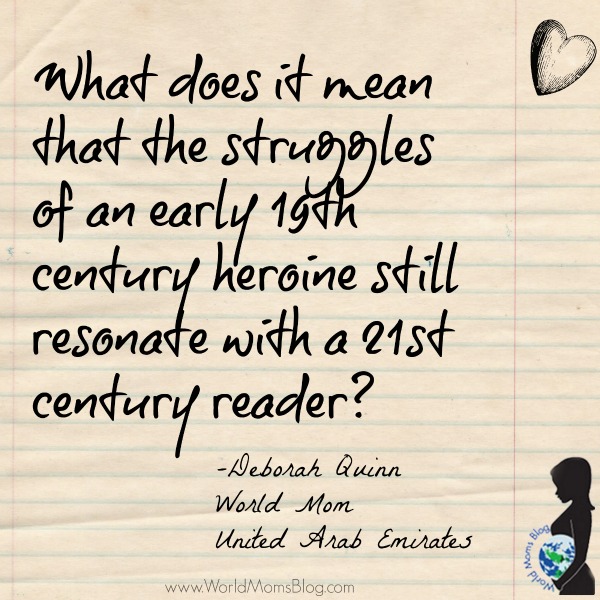
by Mannahattamamma (UAE) | May 5, 2016 | Boys, Equality, Feminism, Girls, Middle East, Older Children, Sports, UAE, World Motherhood

The other day I went to my teenage son’s soccer tournament, and because his game was delayed, I watched a girls’ match finish on the other field. Actually, thanks to the British history in Abu Dhabi, I should say that I went to the “football fixture,” watched the girls play “on the other pitch,” and then at the end of the day took my son to the sports store so he could buy a new pair of “boots” (not cleats). Who knew when we moved here five years ago that one of the ways we would adapt is learning to speak a different version of our native tongue?
As I watched the girls’ match, two girls maneuvered the ball across the pitch, their teammates shrieking encouragement. One girl—a headscarf covering her hair, and leggings under her athletic shorts—passed the ball to her teammate, whose long ponytail was streaked light blue. They brought the ball down the pitch—passed left, passed right—and then Ponytail shot for the goal. The ball bounced off a goal post, looked like it was going to go wide, and then sank into the back of the net past the goalie’s outstretched hands.
“Nice shot,” murmured my son. “Really good pass, too.” Neither of us knew the girls who were playing, but his comment made me happy nevertheless. As the mother of sons, I collect “girl power” moments like this one to remind my sons that they do not have the market cornered on sports excellence. Now that he’d seen for himself, I wouldn’t have to risk being Tiresome Mom by pointing out that those were girls playing pretty kick-ass football.
It’s easy to see in this little episode a lesson about hijab not being the symbol of oppression that so many non-Muslims are quick to assume it is. This girl left her opponents in the dust as she raced down the field, and she pounded her thighs in elation when the ball went into the net. Her war whoop as she ran to the sidelines to celebrate with her teammates would be recognized anywhere as the screech of a happy athlete.
But that’s not really the point. The point has to do with the fact that my fifteen-year-old son didn’t notice the headscarf or the leggings—or the blue ponytail, for that matter—he noticed the football. He noticed what the girls were doing, not what they looked like. As my son moves closer to manhood, a process that seems to be unfolding faster and faster despite my attempts to keep him “my boy” as long as I can, I wonder if my feminist politics have rubbed off: will he become a man who sees what women can do rather than how they look or what they’re wearing?
Isn’t that the question we ask ourselves as our children—those firm little packages of flesh that seemed at one point soldered to our hips—move out into the world: we want to know if our lessons have sunk in, if they’ve been listening even as they seem glued to the Snapchat world in their phones. Does my darling son talk about girls as “hotties” when he’s with his buddies; does he chime in when the conversation turns to which girl has the best body and why?
I don’t know. All I can know is that the other day, what he saw was two people playing great football.
Who knows. Maybe if enough children grow up appreciating what people can do, rather than what they look like or what they do (or don’t) wear on their heads, the world might become a more level playing field pitch.
How do you create awareness about gender equality for your children?
This is an original post to World Moms Blog by Deborah Quinn, Mannahattamamma of the UAE. Photo credit to the author.
After twenty-plus years in Manhattan, Deborah Quinn and her family moved to Abu Dhabi (in the United Arab Emirates), where she spends a great deal of time driving her sons back and forth to soccer practice. She writes about travel, politics, feminism, education, and the absurdities of living in a place where temperatures regularly go above 110F.
Deborah can also be found on her blog, Mannahattamamma.
More Posts
Follow Me:


by Mannahattamamma (UAE) | Feb 8, 2016 | 2016, Adolescence, Boys, Family, Humor, Middle East, Older Children, Parenting, Teenagers, UAE, USA
 Frequently I am embarrassed by the fact that I only speak one language. Many of my friends in Abu Dhabi speak at least two, and most of my students speak three or even four. A few years ago I tried to learn Arabic and was stymied by a simple fact: my brain is old. It’s that whole “old dog new tricks” thing, which is to say, my brain wanted nothing to do with new lexical and grammatical systems.
Frequently I am embarrassed by the fact that I only speak one language. Many of my friends in Abu Dhabi speak at least two, and most of my students speak three or even four. A few years ago I tried to learn Arabic and was stymied by a simple fact: my brain is old. It’s that whole “old dog new tricks” thing, which is to say, my brain wanted nothing to do with new lexical and grammatical systems.
Lately, however, I’ve been confronted with another new language and it’s proving equally difficult to master. In fact, maybe I will never master it.
It’s the language spoken by fifteen-year old boys in the twenty-first century in a first-world city. It’s both a spoken and a written language, comprised of monosyllables, grunts, emojis, and weird snapchat abbreviations. It’s a language that his friends speak fluently and one that he never deigns to translate to us, his parents.
Let me be clear: my son is the proverbial “good kid,” who still (occasionally) sits on my lap (usually when he wants a favor), does his homework without being asked, and is (sometimes) nice to his younger brother. But beyond that?
We get commentary about his basic human needs—food, sleep, wi-fi—and then he retreats into his digitally created iCocoon.
When I look at my son these days, the air seems full of ghosts; it’s like I’m seeing time, compressed and wispy, floating between the two of us. I see his baby self, staggering around the house with mushy graham crackers clenched in each fist, and I see other snippets of his childhood, too, hovering just beyond his (increasingly broad) shoulders. And at the same time, there’s the ghost of my own teenage self, snarling at my mother (sorry mom!) as I stand by the phone, willing The Cute Boy to call me.
The phone is a key difference in this linguistic and generational incomprehension. Those of you of a certain age will remember the days when houses had those things we now call “land lines,” which were anchored in a specific place and were frequently shared by the entire household. That meant that your TOTALLY ANNOYING younger siblings could pick up another extension and a) eavesdrop on your conversation; b) tell your mom what you were talking about; c) tease you mercilessly while you tried to be cool with The Cute Boy on the other end of the line.
Now, however, my son and his teenage friends carry a scrim of adolescence with them at all times, an endless stream of chitterchatter, gossip, sports scores, vaguely obscene quizzes, and god knows what else. Did you know it’s possible to have a scintillating conversation conducted entirely in poop and unicorn emojis, with the occasional emoti-face thrown in for good measure? It’s as if teenagers have all been transported into an ancient Egyptian civilzation and are fluent in hieroglyphs—yet another language I do not speak.
As I think about it, I am not sure, really, whether it’s that my son and I are speaking different languages or that his other language is omnipresent in a way that my teenspeak was not, because technology didn’t let it happen.
At some point I had to hang up the phone and turn off the TV, and engage with my family. Mind you, I wasn’t necessarily pleased about those engagements, but the world of “non-family” was regularly shut off.
Now, with smart phones, the external world is always ready to hand; there is always a way to tune out the family world.
I can hear you all, shaking your heads and muttering that we should set some boundaries and be firm about your expectations and teach your kid some manners and I bet that some of you, with small children, are thinking “my children won’t ever…”
Here’s the thing: I’ve thought all those things too. But then one night my son became fifteen and the battle lines got redrawn. How many times can we argue about how much phone use is too much; how many times can we discuss “reasonable use?” My son insists that I am the only parent who nags about such things, but my totally unscientific research suggests otherwise. I’ve talked with friends from Europe, Africa, the States, and elsewhere in the Middle East, and the screen-time battle seems to be an almost universal parenting problem.
If I think about it, the translation problems run in two directions. If my son could speak “parent,” then he would understand that in my repeated (and to him unreasonable) requests that he turn off his phone and talk to me, I am really saying “don’t grow up so fast, please don’t be in such a hurry to leave us behind.” He would understand that watching him grow up is lovely — and ineffably sad.
Maybe he’d understand if I put it in snapchat-ese for him. Can anyone translate into emoji for me?
How are things different now from when you were a teen? Do you find that the teens of today speak a different language?
This is an original post to World Moms Blog by Deborah Quinn, Mannahattamamma of the UAE. Photo credit to the author.
After twenty-plus years in Manhattan, Deborah Quinn and her family moved to Abu Dhabi (in the United Arab Emirates), where she spends a great deal of time driving her sons back and forth to soccer practice. She writes about travel, politics, feminism, education, and the absurdities of living in a place where temperatures regularly go above 110F.
Deborah can also be found on her blog, Mannahattamamma.
More Posts
Follow Me:


by Mannahattamamma (UAE) | Dec 30, 2015 | Cultural Differences, Feminism, Gun Violence, Holiday, Living Abroad, Middle East, Older Children, Peace, Religion, Terrorism, UAE, World Motherhood

“Will we be safe there?” My 11 year old son asked me that question as we were discussing our winter holiday travel plans, and I suppose, given that we live in the UAE, his question might make sense. In the last few years, we’ve traveled to Jordan, India, Kenya – all places that have been in the news lately as sites of violence.
Where are we going for the winter holidays, you might wonder, that would elicit such a question?
The United States.
I’ll let you think about that for a minute.
Okay, true, his question was a bit of a joke – the question of travel safety has become a running gag in our household, in part because that question is always the first thing my mother (in Illinois) always asks us.
But this time, when he asked the question, none of us laughed. He’d asked us just after the last mass shooting, the one in San Bernandino. And think about that for a minute: I have to specify for you which shooting I’m talking about. Was it the one in Colorado Springs outside Planned Parenthood, or the one in Oregon, or the one…
In other countries, when you say “mass shooting,” there simply aren’t that many to choose from because in the aftermath of the tragedy, governments have changed the laws to make such events less possible. But not in the good ol’ US of A.
When I tell people in the States where I live, there are two questions I am always asked: do I have to “cover” and “do I feel safe?” The answers are “no,” and “yes.” People who didn’t worry about me strolling home after midnight in New York’s East Village in the late 1980s now seem dreadfully concerned about my safety here, in this part of the world, as I drive off to the mall.
Part of why we chose to live abroad with our children had to do with wanting to give them a cosmopolitan perspective on the world: we wanted them to experience other cultures and learn to be open to, rather than threatened by, difference. I know that in the US it is possible to live in cosmopolitan cities—we used to live in Manhattan, where children from many nations crowded into my kids’ classrooms—but it is a different experience to live in a place where “your” culture is not the dominant.
A little while back, for instance, my older son had some friends over so that we could all go to a water park in the afternoon. When I told them it was time to get ready to go, my son said “well, we have to wait a little bit because T. is in the other room doing his prayers.” T. comes from a devout Muslim family and his mother would have been pleased to know that T. didn’t miss a prayer time just because the water park called. And for my son and his other friends, T. doing his prayers was as matter-of-fact as if he’d been changing into his swimsuit, or drinking a glass of water. Ordinary.
Like many of us, at home and abroad, I wrestle with how to explain to my children why the United States can’t simply change its gun laws and why so many people in the country seem afraid of anyone who worships at a mosque rather than a church or a temple. The explanation in both instances seems to boil down to fear: fear of change, fear of difference, fear of that-which-is-not-me.
It’s not much of an explanation, but it’s the only framework I have to explain why Donald Trump, for instance, can still be considered a candidate for the Presidency.
I know that the demagogues like Trump do not speak for all the people in the United States, and that many, many people are outraged by gun violence, but alas, the picture of the country that travels outward to the rest of the world is one of violent, gun-toting Islamophobia – and it’s scary. For me the fear rests not in the thought that Trump will ever be President because I refuse to believe that his bilious self is actually electable. I hang on to that fact as ardently as I once hung on to my belief in Santa Claus. No, my fear rests in the fact that, according to a recent poll, Trump leads the group of Republican Party presidential hopefuls, with 35.8% of the vote.
THIRTY-FIVE POINT EIGHT?
Maybe there really isn’t a Santa Claus.
How do you explain what’s happening in the United States to your children?
This is an original post by World Mom, Deborah Quinn in the United Arab Emirates.
Photo Credit to the author.
After twenty-plus years in Manhattan, Deborah Quinn and her family moved to Abu Dhabi (in the United Arab Emirates), where she spends a great deal of time driving her sons back and forth to soccer practice. She writes about travel, politics, feminism, education, and the absurdities of living in a place where temperatures regularly go above 110F.
Deborah can also be found on her blog, Mannahattamamma.
More Posts
Follow Me:


by Mannahattamamma (UAE) | Oct 15, 2015 | Boys, Education, Family, Feminism, UAE, Women's Rights

“My grandmother told me that a woman is like the neck and the man is the head,” my student said. “Important but supportive.” The rest of the students in my class on “Global Women Writers” nodded their head in agreement. None of the students is from the same country—in fact, their nationalities pretty much span the globe—but apparently they’d all been given similar sorts of instructions. One girl had been told that she should plan on being an accountant because it would be easy to quit when she got married; another girl said that her mother worried that her brains were going to be threatening to her potential husband.
It’s been interesting to listen to these girls—young women, really—explore history and culture through our readings: we’ve spent time in ancient Japan with Lady Murasaki and Sei Shonagon, visited 17th century Spain with Sor Juana, bounced around the 19th century with Mary Shelley (and her mother Mary Wollstonecraft) and Charlotte Bronte; read Chimimanda Adichie’s TED Talk “We Should All Be Feminists,” and then traced Adichie’s ideas back to Virginia Woolf’s A Room of One’s Own—and back again to Sor Juana.
The list of readings is longer than what I have listed here—we will go to India, New Zealand, Egypt, Nigeria, and the UAE before the term is over—but the students have already noticed a pattern. No matter where we are in time and space, we find variations on the same theme: lack of access. Lack of access to money, education, safety, autonomy—the particulars may change, but always the obstacles seem rooted in the material reality of being female, and how the category of “woman” has been valued (or devalued) through the course of human history.

Sor Juana joined a convent so that she could pursue her studies instead of being forced into marriage and motherhood; Jane Eyre famously declared that women “feel just as men feel; they need exercise for their faculties and a field for their efforts as much as their brothers do; they suffer from too rigid a restraint … precisely as men would suffer; and it is narrow-minded in their more privileged fellow-creatures to say that they ought to confine themselves to making puddings and knitting stockings…”
“I love Jane,” exclaimed one student when we read that passage in the novel. “It’s like she’s speaking to me!” When students respond to ideas in the course, I am always delighted, but in this instance, I had to pause.
What does it mean that the struggles of an early 19th century heroine still resonate with a 21st century reader? I know, of course, that men struggle with feeling limited in their choices—as I remind my students, “gender” is something everyone has (although I’ve noticed that when students talk about “gender roles” they mostly talk about women). All the same, however, wouldn’t you have thought that by 2015, we would laugh at the attitudes Jane complains about because they seem so old-fashioned? Instead we experience a flash of recognition that in Jane’s world, as in our own, society insists on placing boundaries around women’s lives.
When I proposed teaching this course, a colleague asked why I had to specify “women.” She wondered why I didn’t just teach a course called “The Global Novel” or something like that. It’s a reasonable question, I suppose, but I think the answer connects, in a way, to why the United Nations decided, two years ago, to declare 11 October the International Day of the Girl: “Empowerment of and investment in girls are key in breaking the cycle of discrimination and violence and in promoting and protecting the full and effective enjoyment of their human rights.” (Click here to see how World Moms Blog celebrated this day.)
Don’t get me wrong – I am the mother of two boys (and no daughters) and while I know that my sons face gender-related struggles, I also know (because I was once a girl, and am now verging on “crone”) that men have not been as systematically pushed to the margins of history. It’s why we have “Secretary Day,” in the U.S., rather than “CEO Day.” We create formal occasions to notice those who would otherwise be silenced, overlooked.
I teach “Global Women’s Writing” because we live in a world where “woman” gets all too easily pushed out of the picture. Ironically, I teach the course in hopes that one day I won’t need to. Perhaps my students–our children–will inherit a world where we don’t need “International Day of the Girl” or a course in “women” writers. Do you think we’ll ever get there?
This post is original to the World Moms’ Blog. Deborah Quinn occasionally blogs at mannahattamamma.com and writes a regular column for The National, the English-language paper of the UAE. Her most recent column can be found here.
Photo credit to the author.
After twenty-plus years in Manhattan, Deborah Quinn and her family moved to Abu Dhabi (in the United Arab Emirates), where she spends a great deal of time driving her sons back and forth to soccer practice. She writes about travel, politics, feminism, education, and the absurdities of living in a place where temperatures regularly go above 110F.
Deborah can also be found on her blog, Mannahattamamma.
More Posts
Follow Me:


by Mannahattamamma (UAE) | Jul 2, 2015 | 2015, Childhood, Feminism, Global Citizenship, Government, Health, Human Rights, International, Motherhood, Newborn Health, Poverty, Save The Children, UAE, USA, World Motherhood

Save The Children
There are some causes that are tricky to rally people around: not everyone wants to ban fur coats, for instance; not everyone thinks that restaurants should post calorie counts on their menus. There are other causes, though, that seem pretty much no-brainers: access to clean water, for instance. Is anyone really going to say “yeah, dirty water, I’m a big fan!” Or saving children. Is anyone really going to say (publicly, anyway) that it’s not a good idea to save children?
Even if we all agree that children should be saved, however, we know that all over the world there are children who need saving, in places where governments and infrastructure don’t seem capable of doing what needs to be done. That’s where organizations like Save the Children step in: they help stitch together the services that can help families survive and give governments a much needed hand.
Save the Children came out with its annual “State of the World’s Mothers” list, which uses five metrics to determine where it’s good to be a mother (and a child). The metrics – maternal health, children’s well-being, educational status (of mothers), economic status, and political status— are combined to give an overall score, which determines where a country falls on the list. Of 179 countries, there are the usual suspects at the bottom of the list—countries where war, natural disasters, and poverty combine in a perfect storm of catastrophe: places like Haiti, or Sudan, or Pakistan.
But there are surprises, too, like the fact that the United States doesn’t even crack the top twenty. Nope, the good ol’ US of A pulls in at 33.
Thirty-third in the world, for a country whose overall wealth and education trumps pretty much everywhere else. The US was beaten by, among others, Slovenia, Belarus, Croatia, and the Czech Republic, as well as all those Scandinavian countries that consistently outperform everyone else when it comes to quality of life issues.
You know what most of these places have that the US does not? A significantly higher percentage of women in government. I suppose a statistician would say that fact is not causal but correlative, and I’m sure that some people would insist that just having women in government won’t automatically make things better for women and children (and thus society), but maybe we should try, and then see what happens?
I live at the moment in Abu Dhabi, in the United Arab Emirates, another wealthy country that doesn’t crack the top twenty on this list. I suppose that for many Westerners, it might seem impossible any Middle Eastern country would score well on a list having to do with women’s lives, but the statistics on this list might help defuse those stereotypes. According to this index, 17.5% of seats in UAE government organizations are held by women, compared to 19.5% in the US; in terms of lifetime risk of maternal death, it is better to be a woman in the UAE: 1 in 5800 versus 1 in 1800 in the US. Women in the US average about 16 years of schooling, women in the UAE about 13; and women in the US tend to be wealthier than women in the UAE (53K for the US, 38K for the UAE).
The Save the Children list doesn’t index maternity leave policy, but that offers another interesting point of comparison.
Women in the UAE only receive 45 days of maternity leave, which isn’t enough, obviously, as any woman who has given birth understands. Women in the US get twelve weeks of maternity leave (although I had to call it “disability” leave in order to ensure that I got the requisite number of days). Twelve weeks, that is, of unpaid leave. John Oliver brilliantly skewered this policy on Mother’s Day, pointing out that the United States aligns with Papua, New Guinea, as the only two countries in the world with no paid parental leave policy. In the UAE, if a woman has a medical certificate that attests to her need for more time at home, she can take up to 100 days of additional (unpaid) leave.
Organizations like Save the Children do invaluable, back-breaking work among desperate populations, but their work raises a question that those of us who live with more privilege should be asking–loudly–of ourselves and our communities: why aren’t we all tied for first place? What has to happen to force “resource-rich” countries take care of its most vulnerable citizens? Why aren’t we doing better?
Where does your country rank in this list? And how do you think your country can do better? Any thoughts?
This is an original post to World Moms Blog by Deborah Quinn in the United Arab Emirates of “Mannahattamamma.”
Photo credit to ‘Save The Children’.
After twenty-plus years in Manhattan, Deborah Quinn and her family moved to Abu Dhabi (in the United Arab Emirates), where she spends a great deal of time driving her sons back and forth to soccer practice. She writes about travel, politics, feminism, education, and the absurdities of living in a place where temperatures regularly go above 110F.
Deborah can also be found on her blog, Mannahattamamma.
More Posts
Follow Me:






 Frequently I am embarrassed by the fact that I only speak one language. Many of my friends in Abu Dhabi speak at least two, and most of my students speak three or even four. A few years ago I tried to learn Arabic and was stymied by a simple fact: my brain is old. It’s that whole “old dog new tricks” thing, which is to say, my brain wanted nothing to do with new lexical and grammatical systems.
Frequently I am embarrassed by the fact that I only speak one language. Many of my friends in Abu Dhabi speak at least two, and most of my students speak three or even four. A few years ago I tried to learn Arabic and was stymied by a simple fact: my brain is old. It’s that whole “old dog new tricks” thing, which is to say, my brain wanted nothing to do with new lexical and grammatical systems.









